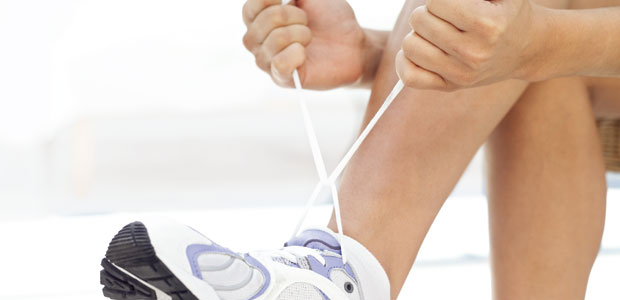Advertisement
Walking: The Ultimate in Fitness Freedom
Elizabeth was looking for a way to reduce stress, depression, and anxiety and achieve a heightened sense of well-being. She told me she hates going to the gym or swimming pool and is looking for another form of exercise to help her reach her fitness goal. “Keep it simple,” I said. Walking is an exercise … Continued

Elizabeth was looking for a way to reduce stress, depression, and anxiety and achieve a heightened sense of well-being. She told me she hates going to the gym or swimming pool and is looking for another form of exercise to help her reach her fitness goal.
“Keep it simple,” I said. Walking is an exercise with surprising benefits. It is the ultimate in fitness freedom: it is suited for anyone, anywhere, anytime-and it involves no cost!
Walk for Weight Control
Just a half-hour of vigorous walking can burn 180 to 250 calories. Calorie counting is just part of the fat loss/energy gain solution; walking can save calorie intake by substituting for excessive eating or snacking. In other words, reach for your walking shoes instead of that extra helping.
Walk More, Be Happy
Walking helps your body release endorphins, molecules that have an analgesic effect on the body, creating a state of euphoria. Endorphins are known as the body’s natural pain killers; not only do they reduce pain, but they also help to reduce stress.
Get Smart, Get Walking
Exercise increases circulation, including blood flow to the brain. A 1999 study published in Nature found that walking 45 minutes a day at a 16-minute-mile pace increased the thinking skills of the participants, all over 60 years of age, who began the program at 15 minutes of walking and gradually increased their speed and time.
Some people enjoy listening to a CD or audiotape while walking. However, be aware that this may reduce your awareness of your surroundings and could possibly even be dangerous.
Add More Healthy Years
Modern science can increase our life span, but it is essentially about planning to live those added years disease-free that counts.
Just 30 minutes of walking a day can add 1.3 healthy years to your life. A study in the November 2005 Archives of Internal Medicine showed exercise levels were directly related to years lived free of cardiovascular disease.
Wendy Bumgardner of About Health and Fitness did the math: 30 minutes of walking a day, invested for the next 12 years, amounts to walking only 49 of those days to gain 1.3 healthy years!
How Much is Enough?
For general health, experts recommend a total of 30 minutes of brisk walking on most days of the week.
To increase fitness levels, aim for the “training zone.” To calculate this, subtract your age from 220. When walking, make sure your heart rate is at least 45 percent of this figure. For example, a 50-year-old walker would aim to have a heart rate of at least 77 beats per minute (220 minus 50, multiplied by 0.45) Divide the number by 6 to get a heart rate for a 10-second count. In this case, it would be 13 (77 divided by 6).
Finding the Right Shoes
Common injuries like plantar fasciitis, muscle pulls, and knee problems may be avoided by wearing the right walking shoe. Look for a low heel with proper flexibility. While in the shoe store, test shoes to make sure they twist; bend them to ensure they bend at the ball of the foot, not in the middle of the arch; and place them on the ground and poke the toe to make sure the shoe rocks slightly off the ground.
In addition, if you know that your feet swell while walking, choose your walking shoes to be a size to a size-and-a-half larger than your dress shoes. Replace walking shoes every 500 miles to maintain the best possible support.
Elizabeth, my new walking partner, has never looked so alive and well!
Studies Show That Walking Can
- reduce the risk of coronary heart disease and stroke
- lower blood pressure
- reduce high cholesterol and improve blood lipid profile enhance mental well-being
- increase bone density, helping to prevent osteoporosis
- reduce the risk of cancer of the colon
- reduce the risk of type 2 diabetes
- help osteoarthritis
- help flexibility and coordination hence reducing the risk of falls




